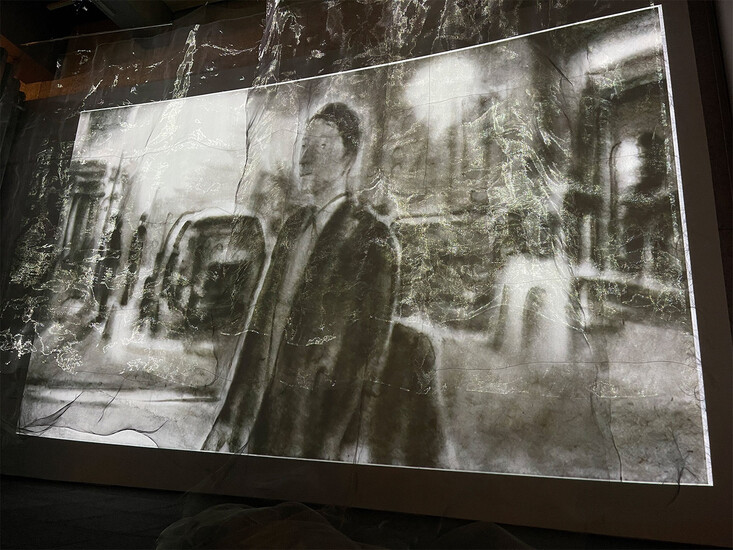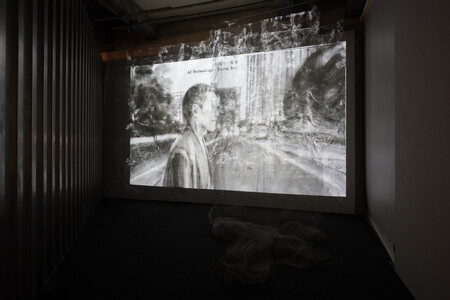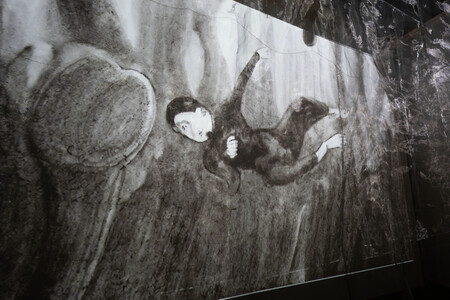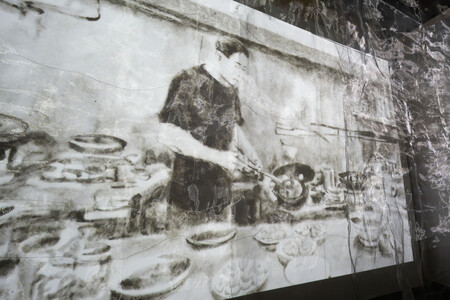Liu Yi’s short ink film ‘Nice to Meet You’ was commissioned by Ichihara Lakeside Museum of Art, Japan, and exhibited in the exhibition ‘ICHIHARA × ART X CONNECTIONS - The World Meets Me’ as part of the ‘Post-Centennial Art Festival: Environment and Desire - Uchihara Gokuji Art Festival’ with the full support of the Embassy of the People’s Republic of China in Japan. ‘The exhibition is a part of ‘Art After 100 Years: Environment and Desire - Uchihara Goshi Art Festival’, and is supported by the Embassy of the People’s Republic of China in Japan.
In the film, the work and life experiences of a Chinese chef in a Chinese restaurant in the Chiba region of Japan are shown, exploring how, amidst the wave of globalisation, an individual can find a sense of belonging and self-identity in a foreign country while inevitably encountering challenges, loneliness and inner struggles.
Liu Yi’s use of interlaced images and delicate emotional expression in the film captures the loneliness of the protagonist amidst his busy work schedule and limited social contacts. The film focuses on the daily life of the character and digs deeper into his complex inner world. For a more vivid representation, Liu Yi uses ink animation, a traditional art form, to blend reality with the protagonist’s fantasy world, creating a visual experience that intertwines reality and imagination, allowing the audience to feel the protagonist’s emotional journey more deeply.
Detail pictures:










